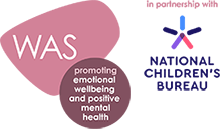- Home
- News & Events
- News Blog
- How Food Fuels Learning: Why Healthy Hab...
News Blog
How Food Fuels Learning: Why Healthy Habits Matter at School
Posted on: 9th May 2025Think Smart, Eat Smart!
It’s widely understood that good nutrition supports children's physical development, but we now know it also plays a crucial role in how children learn, focus, regulate emotions, and grow into healthy adults.
By giving children the knowledge behind nutrition early on, we can empower them to make smarter choices for life; and help them navigate a food environment that’s becoming increasingly dominated by ultra-processed products.
Why Start Young? The Science Behind Early Education
Physical and mental health are both benefited by building healthy food habits at a young age. According to the British Nutrition Foundation (2023), taste preferences and eating behaviours are shaped in early childhood, and repeated exposure to nutritious foods increases acceptance over time.
A major review published in Appetite (2022) found that children who understand the purpose behind healthy eating are more likely to maintain those behaviours into adolescence. It’s not just about being told to “eat your veg”- it’s about knowing why.
In fact, a 2023 report from the Food Foundation highlighted the need for stronger food education in primary settings, linking early nutrition literacy to better food choices, stronger dietary patterns, and reduced reliance on ultra-processed foods.
The Rise of Ultra-Processed Foods: A Hidden Challenge
Ultra-processed foods now account for up to 64% of UK children’s daily calorie intake (University of Cambridge, 2023). These foods are often high in sugar, unhealthy fats, and additives, while being low in the fibre, protein, and essential micronutrients children need for brain and body development.
A 2023 cohort study in BMJ Nutrition, Prevention & Health linked higher ultra-processed food intake in children to increased risks of anxiety, poor sleep quality, and lower academic performance. The report calls for urgent education efforts to help children and families understand what these foods are and how to reduce their consumption.
Understanding the 'Why' Builds Lasting Habits
Children are naturally intuitive eaters; they're born with an ability to recognise hunger and fullness cues. Children today face a growing dichotomy between their natural, intuitive relationship with food and the overwhelming presence of ultra-processed, convenience options that disrupt healthy habits before they’re fully formed.Teaching children why food matters helps them rebuild that internal compass.
As highlighted in the Lancet Public Health (2022), nutrition education that includes biological reasoning; like how food affects energy, mood, and the brain - is more effective than surface-level messaging (e.g. "eat your greens because they’re good for you").
So we now understand that what children eat has a profound impact on their daily lives bothin, and out, of the classroom.
Lets break this down into six tangible take-aways that help to distill the ‘why’ behind better choices.
1. The Brain Runs on Food - Literally
The brain only weighs around 2% of a child’s entire body weight, however, it uses up a massive 20% of their daily energy intake. It's the most power hungry engine in the body and requires the right kind of fuel to run efficiently.
2. Protein: The Building Blocks for Bodies and Brains
Protein isn’t just about muscles; it plays a central role in how the brain functions. It’s used to build neurotransmitters, the tiny messengers that carry signals between brain cells. These affect mood, attention, motivation, and memory.
- Protein-rich foods (such as eggs, beans, fish, yogurt, chicken, and lentils) supply amino acids, which the brain uses to make chemicals like serotonin (which promotes feelings of calm and happiness) and dopamine helping support focus and motivation.
- Without the key building blocks the brain needs it becomes sluggish with an inability to grow properly - sort of like trying to make a call with poor signal!
3. The Gut–Brain Axis: The Second Brain
Did you know your tummy talks to your brain? This connection is called the gut–brain axis.
- The gut has millions of neurons and its own microbiome - a mix of friendly bacteria that support digestion, mood, and immunity.
- A diet rich in fibre (from fruit, veg, beans, and wholegrains) helps grow these good bacteria, which then send positive signals to the brain.
A recent study in Nature Reviews Neuroscience (2022) showed that children with healthier gut microbiomes tend to experience better mood regulation and fewer behavioural challenges.
4. Water: The Hidden Hero
Dehydration can lead to headaches, fatigue, and poor concentration. Even a 1-2% drop in hydration can affect cognitive performance in children (British Nutrition Foundation, 2023). Children who drink enough water perform 23% better in memory-based tasks (British Nutrition Foundation, 2023).
5. Whole Grains: Long-Lasting Fuel
Unlike sugary snacks that spike energy and crash later, whole grains (like oats, wholemeal bread, and brown rice) provide essential minerals, vitamins and slow-releasing carbohydrates. These stabilise blood sugar rather than sending them on a blood sugar roller coaster riddled with peaks and troughs, which helps children stay alert and focused longer.
6. Sleep, Movement, and Mindset
Nutrition doesn’t work in isolation. Sleep and activity are essential companions. Children aged 6-12 need 9–12 hours of quality sleep per night for brain growth and emotional regulation (British Sleep Society, 2023).
Furthermore, physical activity boosts oxygen circulation to the brain, reduces anxiety through the release of endorphins, and increases classroom engagement.
Behind every healthy habit is a moment of understanding. When children know ‘why’ food fuels their energy, focus, and mood, they begin to build habits that stick.
The goal isn’t perfection; it’s awareness. Equip children with the knowledge, and they’ll make better choices for life.




